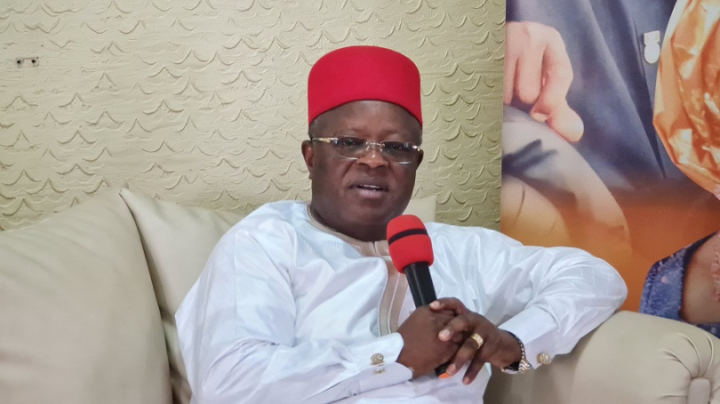The Federal Government has commenced a comprehensive review of its highway concession agreements with private partners under the Highway Development and Management Initiative (HDMI), in a bid to prevent potential legal disputes and ensure the success of road infrastructure projects across the country.
The review comes amid rising concerns over the viability of the initial terms of the concessions signed with private sector investors to develop, maintain, and toll major federal highways. According to top officials from the Ministry of Works, the decision to reassess the agreements is driven by changing economic realities, including inflation, fluctuations in traffic volumes, and foreign exchange instability, all of which have impacted original projections.

The Minister of Works, David Umahi, emphasized the need for transparency and fairness in public-private partnerships. He explained that several of the original concession agreements were signed during a different economic climate, and both the government and the concessionaires now face new challenges. Umahi stated that the review is essential to avoid prolonged delays in infrastructure development and costly litigation that could arise from unresolved disagreements.
The HDMI was designed to mobilize private capital for the construction and management of federal highways through a concession model, where investors recoup their investments via toll collection over several decades. However, many concessionaires have reportedly raised concerns about the feasibility of continuing under current terms. These concerns include reduced projected revenues due to falling vehicle usage, increased construction costs, and difficulty in securing financing amid tightened monetary conditions.
The Federal Government, acknowledging these challenges, is now working collaboratively with the concessionaires to re-evaluate the terms of engagement. A joint review committee comprising representatives from the Ministry of Works, Infrastructure Concession Regulatory Commission (ICRC), Ministry of Finance, and the concessionaires themselves has been tasked with recommending necessary adjustments to the agreements.
According to ministry insiders, areas of review include the duration of the concessions, tolling rates, traffic assumptions, and financing models. Some projects that were awarded under Phase One of the HDMI are being scrutinized to determine if revised economic models can keep them viable. Government sources indicated that some of the tolling structures proposed may not be suitable for present-day realities, especially given public sensitivity to new charges amid inflation and fuel subsidy removal.
In addition to financial issues, legal experts advising the government have flagged certain clauses in the concession agreements that may be problematic if disputes arise. These include performance guarantees, dispute resolution mechanisms, and penalties for delays. As a precautionary measure, the government is revisiting these clauses to ensure they align with international best practices and minimize litigation risks.
Infrastructure stakeholders have welcomed the move as a sign that the government is committed to building durable partnerships. They argue that it is better to renegotiate and realign terms early, rather than face disruptions later due to non-performance or investor withdrawals.
Meanwhile, some investor groups have expressed cautious optimism. One consortium leader involved in a major southwest highway project noted that while they remain committed to the project, there is a clear need for mutual flexibility. He emphasized that foreign exchange volatility and high interest rates have altered the risk landscape, making original revenue models obsolete.
The review is expected to affect at least nine major highway corridors under the HDMI scheme, covering nearly 900 kilometers of roads across the country. These include strategic routes like the Lagos-Abeokuta, Abuja-Keffi, and Benin-Asaba highways, which are crucial for trade and national connectivity.
To avoid project abandonment, the government has also directed concessionaires to provide updated financial guarantees and evidence of funding capability. This requirement aims to ensure that only serious investors proceed with implementation, reducing the risk of delays and lawsuits.
The Infrastructure Concession Regulatory Commission, which supervises public-private infrastructure deals in Nigeria, has pledged to work closely with the Ministry of Works to support a transparent and efficient renegotiation process. The ICRC Director-General stressed that renegotiating does not mean discarding the initiative but rather fine-tuning it to deliver value to both the government and private partners.
Legal observers note that the process is an opportunity to improve Nigeria’s public-private contracting framework. They caution, however, that the review must be conducted quickly and transparently, as prolonged uncertainty could scare away future investors and harm the credibility of the government’s infrastructure programme.
Civil society groups and watchdog organizations are also monitoring the review closely. Some have called on the government to disclose all revised agreements to ensure public accountability, especially regarding tolling arrangements and service delivery expectations.
As Nigeria continues to pursue infrastructure development through private partnerships, the outcome of this concession review process is expected to set a precedent for future engagements. If successful, it could restore investor confidence, accelerate road construction, and enhance transportation networks across the country.
However, failure to conclude the review in good time or a breakdown in negotiations could trigger a wave of litigation and stall projects meant to ease movement and boost economic growth. With roads serving as the arteries of commerce, the stakes are high for both the government and its private sector partners.
Support InfoStride News' Credible Journalism: Only credible journalism can guarantee a fair, accountable and transparent society, including democracy and government. It involves a lot of efforts and money. We need your support. Click here to Donate
